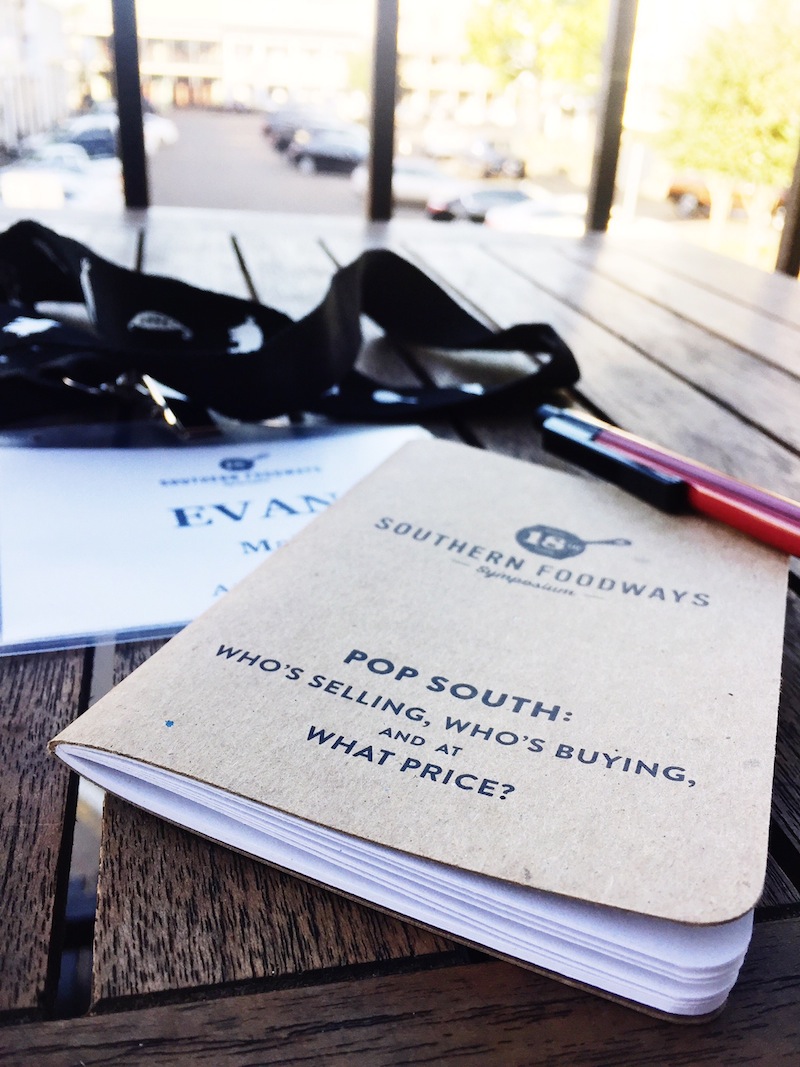 Picture this: You’ve just eaten five courses of grits—grits with shrimp, grits with crab, grit fritters, grit tarts, deviled eggs with grits—and you walk outside because you need to move. Something needs to move. Drink in hand, you walk up to a crowd that’s gathered around what looks like a dunk tank. Actually, it is a dunk tank. And it’s filled with water and grits. Sitting on the dunk tank’s platform, you spot, dressed as shrimp, John Currence, one of the South’s most lauded chefs and himself a James Beard Award winner. He’s bobbing his shrimp head, throwing back a cocktail, and taunting every pitcher who steps up to sink him. Charleston’s Sean Brock, another James Beard Award winner, grabs a ball, steps out of the crowd, and slings one towards the target. He’s off. He’s way off. “Is that you, Mama Brock?” Currence taunts. Nobody can fell the shrimp man, until John’s wife steps up. On her first try, she sends her husband down into the grit water. Thunderous applause follows. Everyone disperses for more food and more drink. Welcome to the Southern Foodways Alliance symposium.
Picture this: You’ve just eaten five courses of grits—grits with shrimp, grits with crab, grit fritters, grit tarts, deviled eggs with grits—and you walk outside because you need to move. Something needs to move. Drink in hand, you walk up to a crowd that’s gathered around what looks like a dunk tank. Actually, it is a dunk tank. And it’s filled with water and grits. Sitting on the dunk tank’s platform, you spot, dressed as shrimp, John Currence, one of the South’s most lauded chefs and himself a James Beard Award winner. He’s bobbing his shrimp head, throwing back a cocktail, and taunting every pitcher who steps up to sink him. Charleston’s Sean Brock, another James Beard Award winner, grabs a ball, steps out of the crowd, and slings one towards the target. He’s off. He’s way off. “Is that you, Mama Brock?” Currence taunts. Nobody can fell the shrimp man, until John’s wife steps up. On her first try, she sends her husband down into the grit water. Thunderous applause follows. Everyone disperses for more food and more drink. Welcome to the Southern Foodways Alliance symposium.
The symposium, held every fall in Oxford, Mississippi, is my favorite event of the year. Not because it’s one of the few places where high profile chefs and grit-filled dunk tanks might possibly collide. And not because it’s where, on Sunday, New York Times food critic Pete Wells appeared on stage in a mask to perform a dramatic reading of his viral review of Guy Fieri’s restaurant to the tune of contemplative piano music. Beyond the fun, the food, and the booze, what draws me in—and likely the 400 or so other journalists, chefs, and food professionals who attend—is the seriousness with which the SFA tackles pivotal issues that play out in our communities.
As much as the group celebrates the South, the SFA is dedicated to studying and prodding relevant hot topics. Last year’s theme—the 50th anniversary of the Civil Rights Act—launched discussions of how restaurant dining rooms and kitchens intersect with race, ethnicity and sexual orientation. This year’s theme—pop culture in the South—was much more lighthearted. Five speakers in particular stood out, delving into questions about authenticity, Southern icons, and assimilation.
Gustavo Arellano, author of Taco USA: How Mexican Food Conquered America
“Is the South going to allow the assimilation of Mexicans?” This was the pressing question that Arellano put forth while, oddly enough, wearing a sombrero (“Heavy lies the sombrero, South. Are you ready to wear it?” he asked). The editor of OC Weekly in Orange County, California, Arellano outlined the challenges of American-born Mexicans who call the South their home but are viewed as outsiders.

Jack Hitt, author and contributing editor
It’s not enough to say that you’ve heard of Jack Hitt. You have to hear him. A contributor on This American Life and a frequent fixture in Oxford American, Hitt was the most gifted storyteller I heard. His voice was like a Ferrari, executing whiplash-like acceleration, on-the-dime turns, and unimaginably smooth handling through a thoughtful, honest talk about confronting the Confederate flag and Southern heritage.
Kiese Laymon, author of Long Division
Reading from an excerpt of his story that will appear in the winter issue of Oxford American, Mississippi-born Laymon opened the conference with a moving salvo that laid out how “the soul of American pop culture will always be black and Southern.”
Monique Truong, author of the Book of Salt
I can’t get over the way Truong explained her relationship with the English language. Though the best-selling author emigrated to America from Saigon as a young girl in 1975, she confessed that English is still foreign to her and that she sees words as shapes and sizes and colors. “I don’t take language for granted,” she said. It’s partly why her every sentence carried so much weight as she described being “reborn” (not in the religious sense) in Boiling Springs, North Carolina, and her ensuing identity struggle, which she details in her new book, Bitter in the Mouth.
Tom Okie, professor of history at Kennesaw State University
Why are Georgians so obsessed with peaches? They aren’t even our number-one export, lagging behind turf, pine straw, pecans, and broiler chickens. Okie explored the state’s beloved fruit, the subject of his upcoming book, The Georgia Peach: Culture, Agriculture, and the Environment in the American South. One striking detail: the peach crop would not have been possible without the sweat and numbers of Georgia’s slaves, who worked on cotton during the other months.










